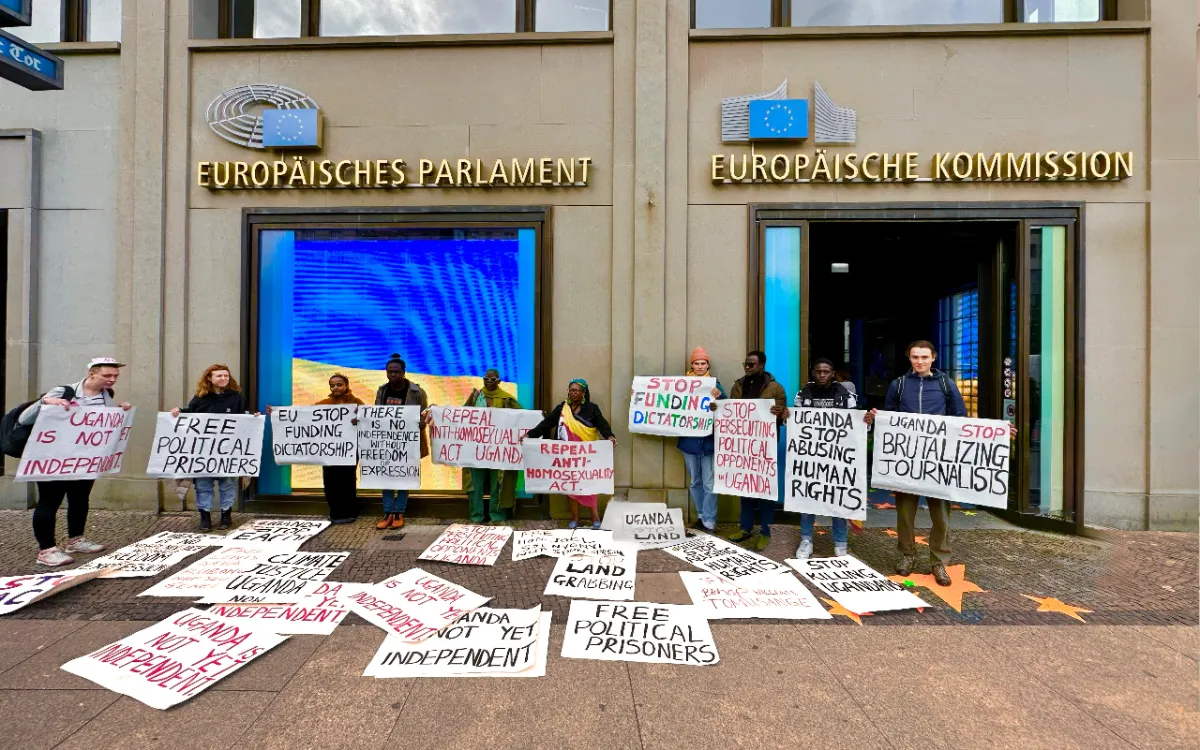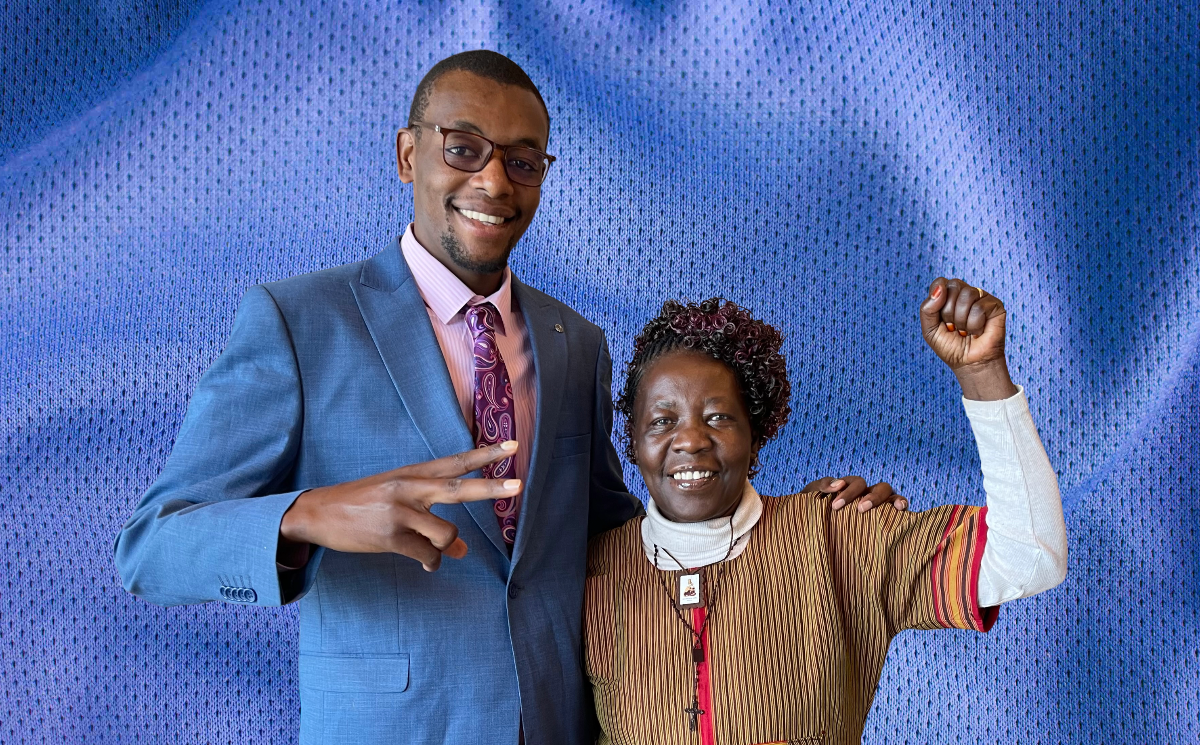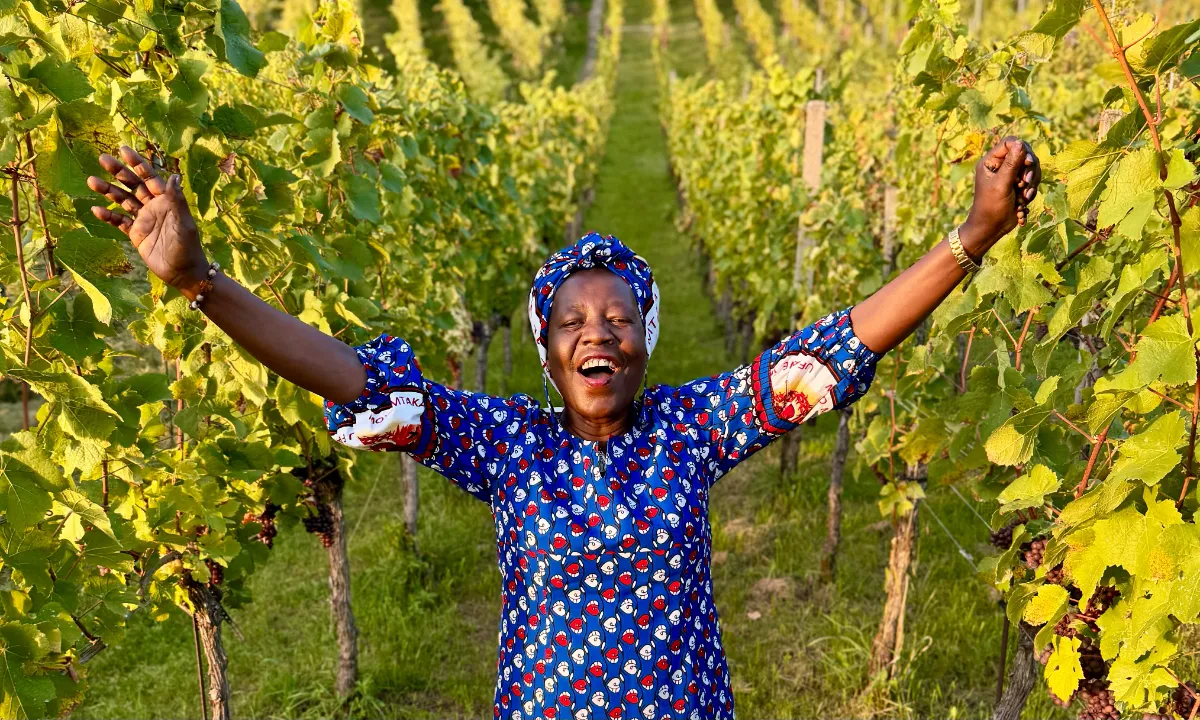
Museveni, the Peacekeeper
Uganda's 2016 Kasese massacre left over 100 dead, with no justice served. Security forces stormed the Rwenzururu kingdom palace, sparking violence and arrests.
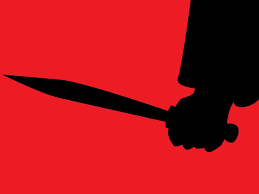
08 Nov, 2024
Share
Save
My story is a boring one but I will narrate it nonetheless: Death was cloaked in fear and silence, and as it stung, blood flew all over the streets. The shepherd commanded the dogs to prey on the flock... it’s sad yet alarming!
It seems far to those who look at it from afar. It was the grand theater of life where absurdity eclipsed reason; the 2016 Rwenzururu events stand out as a tragically comedic act in Uganda's ongoing “political drama.” Amid the picturesque Rwenzori Mountains, the scene was set not for a jubilant celebration of culture but for a gut-wrenching farce! The state played the villain with a flourish, and the subjects were cast as unwitting tragic heroes.
The curtain rose with the shepherd's alarming announcement: a directive for the arrest of the king, the revered Omusinga, and a callous order for the “neutralization” of his supporters. The stage was crowded with armed forces, with crisped uniforms and weapons glinting under the sun, while the actors of Rwenzururu prepared for their roles as mourners in a tragedy that claimed lives, dreams, and futures. As bullets rang out and the smoke of conflict clouded the air, the script of despair unfolded, casting an ominous shadow over the land.
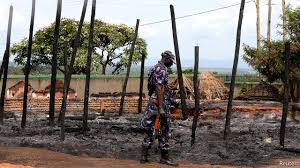
In the aftermath, the orphaned children took centre stage, their eyes reflecting the despicable pain of loss. These were not just any children; they were the seeds of hope, the young leaders of tomorrow, now left to navigate a world stripped of guidance. Each orphan bore the weight of a silent scream, their childhood abruptly interrupted by the violence that took their parents—vibrant lives snuffed out like candles in a storm. The future looked bleak as these young souls wandered through the debris of what once was, seeking answers to questions far too complex for their tender years.
“Why did they take my father?”
A young girl cried, her voice barely above a whisper, echoing the sentiments of countless others.
“He was supposed to teach me to be strong, to lead my people!”
Her words hung in the air like a bitter reminder of promises unfulfilled, as the state’s heavy hand crushed not only the present but also the future. With each fallen youth, the wall-hanging of leadership frayed, leaving behind a landscape devoid of visionaries, innovators, and changemakers.
But in the dominion of mockery, we must find humour in the absurdity of it all. Imagine the state, adorned in its bureaucratic garb, patting itself on the back for “restoring peace” while turning a blind eye to the cries of the very citizens it was meant to protect. What a remarkable feat of governance! When did the right to live, the right to exist, and the right to dream become luxuries rather than fundamental human rights? Is it truly “peace” when the sound of gunfire drowns out the laughter of children? And who needs human rights when we can have the “stability” of oppression?
But is this all?
How about those who are silenced in silence? Isn’t this a move so utterly dramatic that it could rival Shakespeare’s finest works? The king, a symbol of cultural identity and resilience, was forcibly removed from his throne, leaving his followers in disarray. “Long live the king!” they shouted in vain, their voices drowned out by the gunfire and the cacophony of governmental bravado. Did the state truly believe that a king could be silenced by force and that a people could be oppressed into submission? How long can you sit on a throne made of shattered dreams before it crumbles beneath you?
As the dust settled, the people of the flock were left to pick up the pieces of their shattered lives, grappling with the irony that in the name of progress, they were forced to regress into a state of mourning. The pain of losing their young, potential leaders left scars deeper than any bullet wound. In the aftermath of the government’s show of force, the true cost of power became painfully clear: it is not merely the lives taken but the dreams deferred and the hopes extinguished that constitute the real tragedy. How many more leaders must we lose before the government realizes that true power lies in the hearts and minds of the people, not in their suppression?
I am still boring, right? But this is not just a mere historical footnote but a stark reminder of the fragility of hope in the face of tyranny. In a world where the absurd is often construed as governance, we must continue to tell the stories of those lost, the orphans left behind, and the dreams that now linger like ghosts in the wind. The tragedy is not just theirs but ours—a shared burden that reminds us that the future is a fragile drapery, one that must be woven with care, respect, and the voices of the young, lest we lose them forever to the dark farce of power. And in the end, who will be held accountable?
When will we demand to know? At what cost do we buy our silence?
About the author
Abdullatif Eberhard Khalid (The Sacred Poet) is a Ugandan passionate award-winning poet, Author, educator, writer, word crosser, scriptwriter, essayist, content creator, storyteller, orator, mentor, public speaker, gender-based violence activist, hip-hop rapper, creative writing coach, editor, and a spoken word artist. He offers creative writing services and performs on projects focused on brand/ campaign awareness, luncheons, corporate dinners, date nights, product launches, advocacy events, and concerts, he is the founder of The Sacred Poetry Firm, which helps young creatives develop their talents and skills. He is the author of Confessions of a Sinner, Vol. 1, A Session in Therapy, and Confessions of a Sinner, Vol. 2. His poems have been featured in several poetry publications, anthologies, blogs, journals, and magazines. He is the editor of Whispering Verses, Kirabo Writes magazine issue 1 and edits at Poetica Africa.
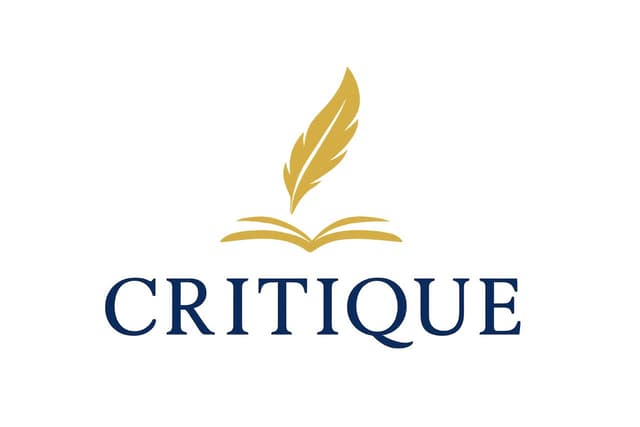
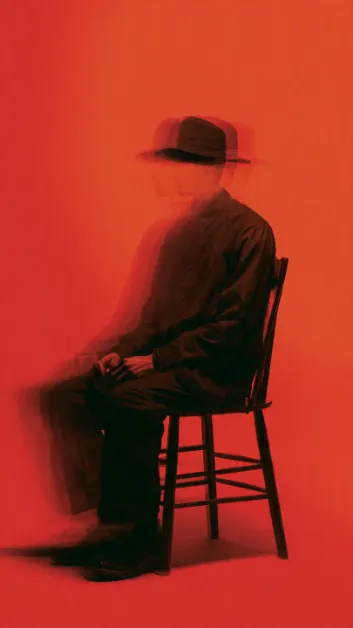
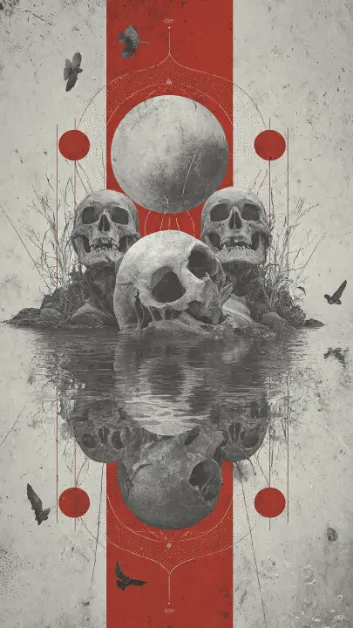
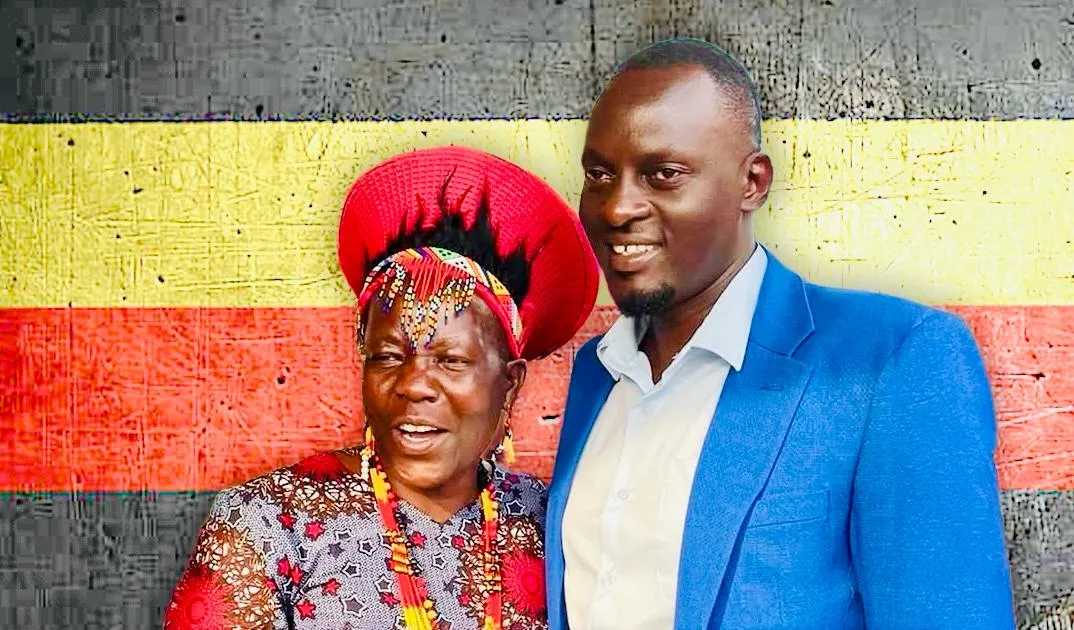
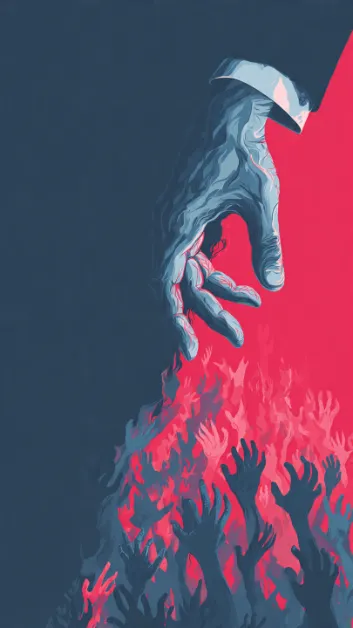
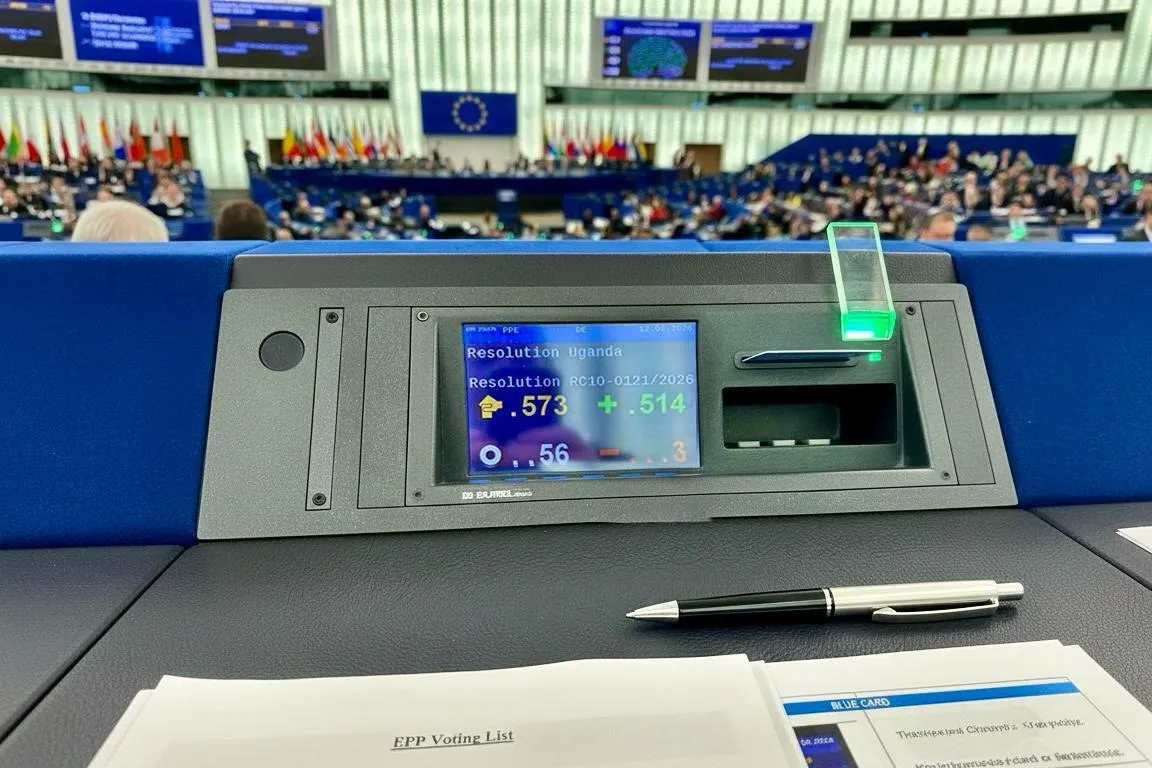
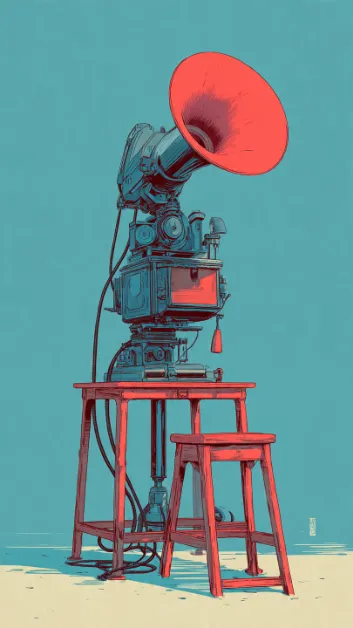
.webp)
